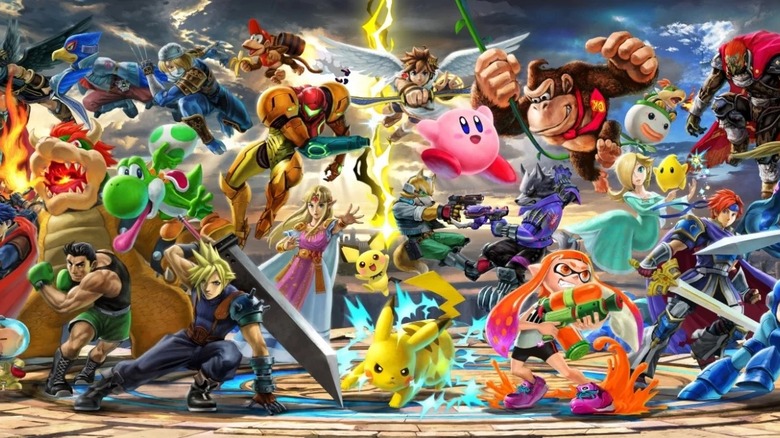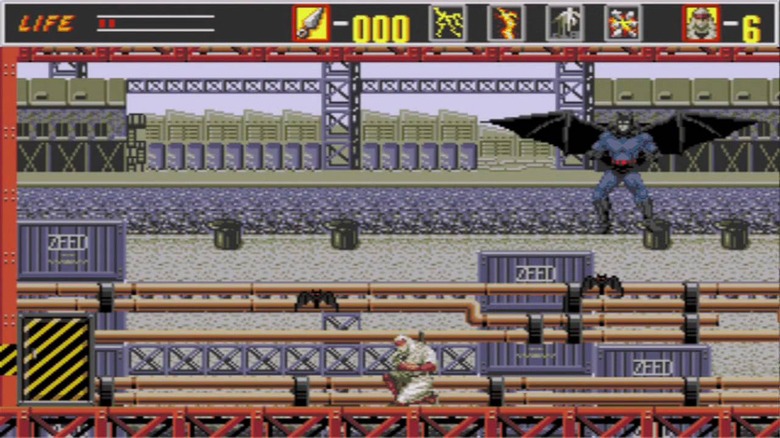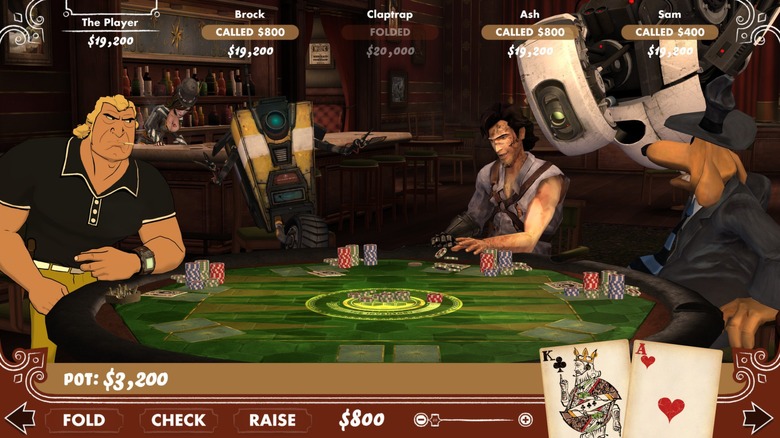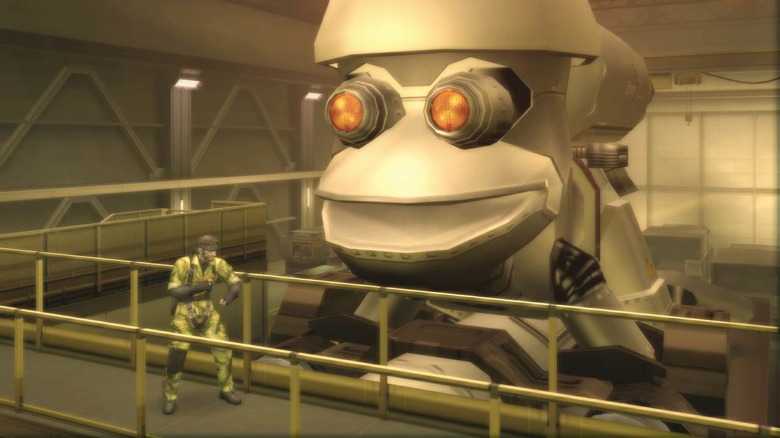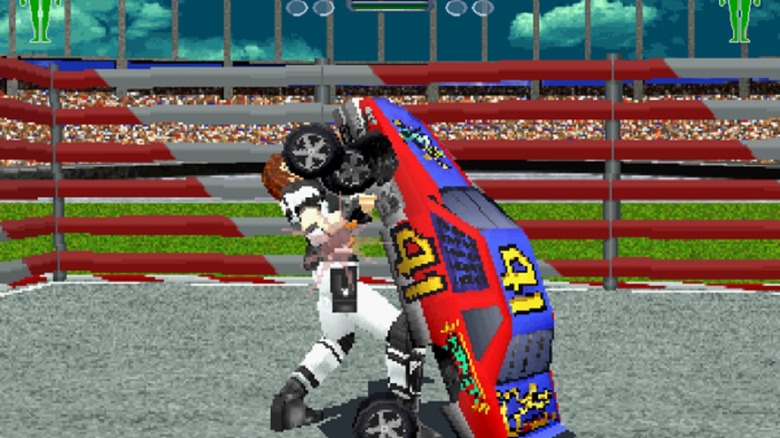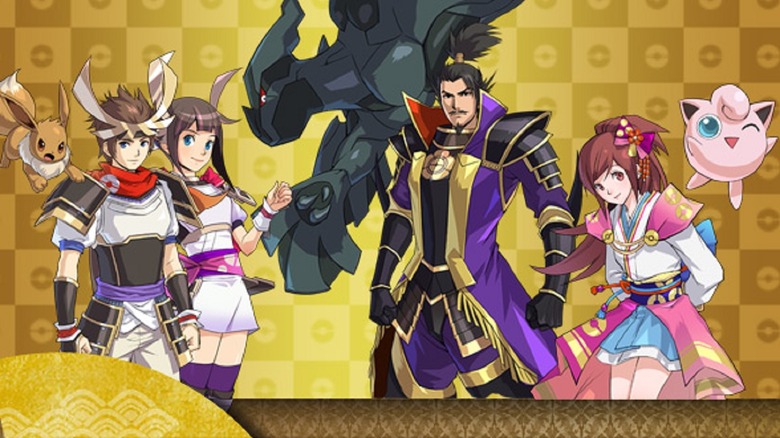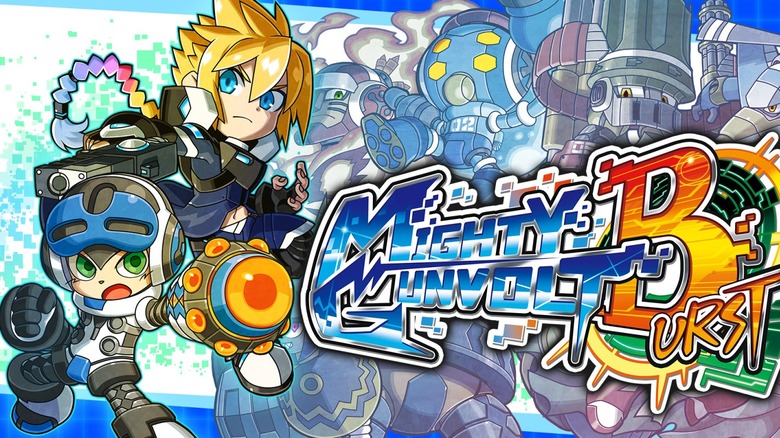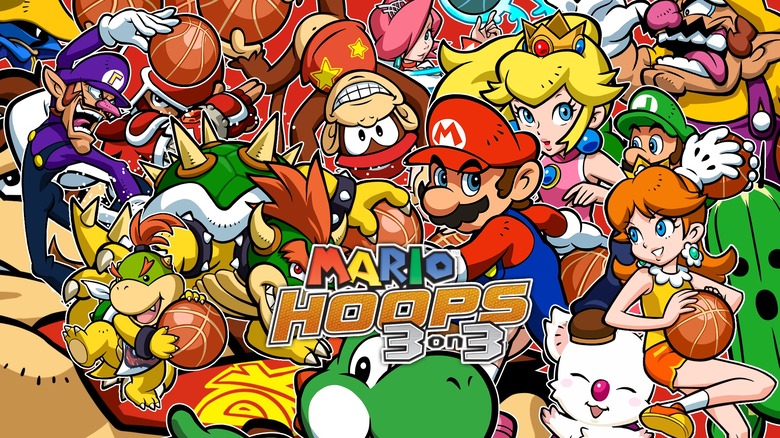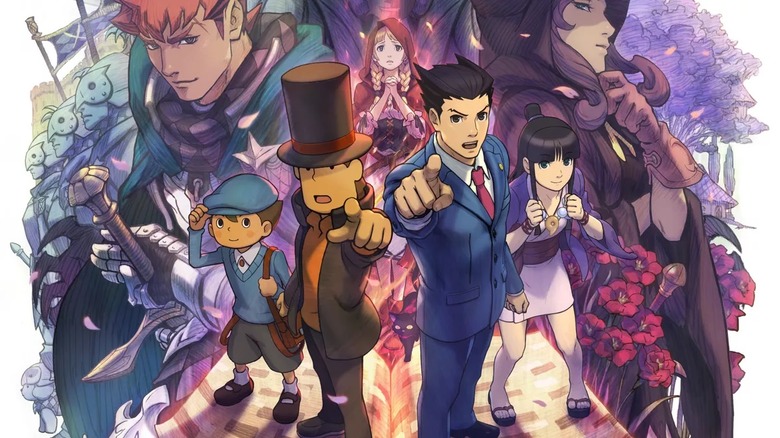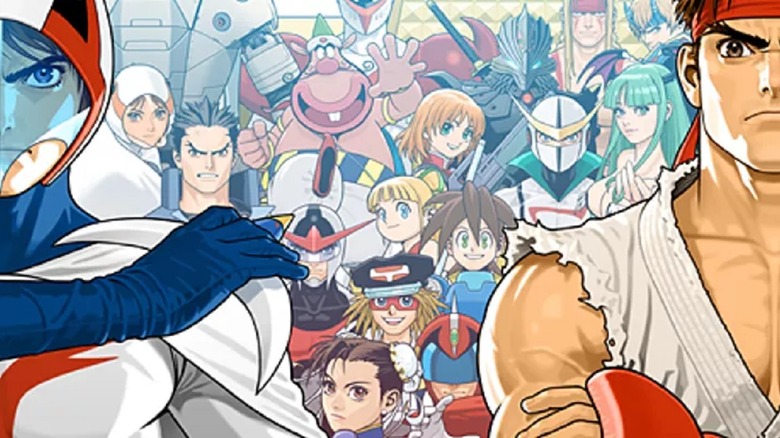The Weirdest Game Crossovers You Never Heard About
We currently live in the age of the shared universe. Kids used to dream about which character could beat up which character and how cool that movie would be. Now, they don't have to wonder; chances are, that crossover is one sweet licensing deal away from becoming a billion dollar movie like Avengers, or a crazy crossover fighting game like Super Smash Bros.
Sometimes, though, folks can get a little too ambitious for their own good. That's when you wind up with crossovers nobody asked for and nobody would have even thought of in a million years. Sometimes it all works out for the best. Sometimes, well, it just plain doesn't. But at the very least, they're good for a nice hearty "What the hell were they thinking?" from time to time. Let's have a look at the best of the weird in gaming crossovers.
Batman v Spider-Man: Dawn of Genesis (Revenge of Shinobi)
The Shinobi games are already on the bleeding edge of cool just by being exactly what they are: games about a shuriken-slinging ninja named Joe Musashi who flips out and kills people. And as we are all well aware, the entire purpose of ninjas is flipping out and killing people.
That apparently just wasn't enough for Revenge of Shinobi's director, Noriyoshi Ohba. While in the process of designing the game's enemies and bosses, he made a few rough sketches, mostly based on popular characters from movies and comics, intending for the game's sprite designer to make a couple of necessary tweaks and have some appropriately cool baddies for Joe to slay. That seems to have been the case for a few of the enemies who are just far enough removed from The Terminator, Godzilla, and Rambo to avoid a lawsuit. One particular late-game boss stage, however, wasn't as thinly veiled, and was just a straight up fight between Badass Shuriken Ninja and, well, Batman and Spider-Man.
Sega, of course, found themselves in a wee bit of legal trouble, leading to the two characters being edited out little by little through every subsequent re-release of the game. But once upon a time, your friendly neighborhood Spider-Man and the World's Greatest Detective both got destroyed by the World's Greatest Ninja.
So a robot, a dog, the guy from Evil Dead, and Brock Samson walk into a bar ... (Poker Night 2)
Telltale Games weren't exactly big-time in the wake of Walking Dead Season 1, but that game's success did give them just the right amount of clout in the industry to get weird with IP if they wanted to. And while it was their follow-up, The Wolf Among Us, that got all the attention, another title slipped out under the radar that's even weirder than a universe where Ichabod Crane has sexual hangups involving Snow White.
Telltale's first crack at a star-studded poker game was Poker Night at the Inventory, and the big names posting the blinds were Strong Bad from Homestar Runner, Tycho from Penny Arcade, Max from Sam & Max, and the Heavy from Team Fortress 2. An eclectic bunch, but pretty true to Telltale's pseudo-indie roots. Poker Night 2, on the other hand, makes you ante up with Brock Samson from The Venture Brothers, Ash from Evil Dead, Sam from Sam & Max, and Claptrap from Borderlands, with GlaDOS from Portal as the dealer. A much higher-profile mix, but aside from Claptrap being Claptrap, they're virtually all a great bunch of folks, shooting the breeze about contract murder, demon-possessed limbs, and the rampant flea problem in the city. Even GlaDOS shows remarkable restraint in not trying to kill them all ... for science. Though in Claptrap's case, she'd be justified. So very justified. For science.
Monkey Snake, monkey do (Metal Gear Solid 3/Ape Escape 3)
It says a lot about the craziness Solid Snake has seen over the years that a horde of super-intelligent monkeys escaping doesn't even rank as all that weird in his book, but regardless, that's exactly what went down when, for reasons unknown, Konami decided to team up with Sony and cross over Metal Gear with the Ape Escape universe.
Neither company skimped on tying the lore together, either. In Metal Gear Solid 3's case, the crossover takes the form of a special mode called Snake vs Monkey (which is only on the PlayStation ports, for obvious reasons). In it, all the captured super-smart apes have escaped into the jungle, but Spike and Jimmy, Ape Escape's heroes, are on summer vacation. Considering it an issue of national security, the Professor responsible for the apes calls in a favor with Roy Campbell, who drafts Solid Snake to handle the matter quickly and quietly.
In Ape Escape 3, you can use gold coins to purchase a minigame called Mesal Gear Solid, where the Professor returns the favor. Snake goes missing after trying to stop (ahem) gorilla terrorists from using a secret weapon called Mesal Gear. The Professor then gives one of his apes a Pipo Helmet with Solid Snake's battle data installed to stealth in and take out Mesal Gear. Just saying, though, this would've been the perfect time to make a literal Revolver Ocelot gag.
Daytona WTF (Fighters Megamix)
Fighters Megamix was a Sega Saturn game that crossed over the highly-technical and self-serious Virtua Fighter franchise with Fighting Vipers, which is kinda like Virtua Fighter's crazy, hard living, alcoholic cousin. Still, it's no weirder than having, say, the X-Men crossover with Street Fighter; the play styles are pretty compatible, and it's honestly one of the best games on the Saturn. That's not why it makes the list, though.
See, like most fighting games, Fighters Megamix had unlockable fighters, all taken from various Sega titles of the era, so you had Sarah from Virtua Cop 2 trading blows with Bark the Polar Bear from Sonic The Fighters (which we're sorry to remind you was a game that happened once). One of said unlockable fighters is Hornet, an actual race car from Daytona USA, standing on its back wheels, hitting opponents with the front wheels, and revving its engine to speak. It is the hands-down winner of most bizarre thing that's ever happened in a fighting game, and we've seen a kangaroo fight a living log in Tekken before.
Professor Oak's ambition (Pokemon Conquest)
In the "It made more sense in Japan" category, we have Pokemon Conquest. For those unfamiliar, Nobunaga's Ambition is one of the very first games in the turn-based strategy genre, with the NES and PC ports of the second game in particular held up as classics. It's one of the first series to bill itself as historical simulation, laying the foundation that series like Civilization and Total War continue to build upon now. However, even though there's been over a dozen of them over the years, the Nobunaga's Ambition games are considered niche titles in the West. In Japan, the series is essentially a revered institution.
So, it made sense culturally that, when The Pokemon Company's and Tecmo Koei's CEOs expressed mutual admirations for each others' work, the two decided to collaborate on a lighthearted little title that married both worlds. In practice, especially outside of Japan, it's a complete oddity, just plopping Pokemon into the Sengoku era of Japan like they'd always been there, positing a hidden island off the coast shaped like an Arceus, and Oda Nobunaga himself coming to take over the island with a bunch of dragon Pokemon. It'd be like having a game about George Washington crossing the Delaware, and all of a sudden, Sephiroth shows up to challenge him to a duel.
Re-Volt-lution No. 9 (Mighty Gunvolt Burst)
Everything that could go wrong with Mighty No. 9 — financially, conceptually, and logistically — did. The game itself is a disaster all around. However, Mighty No. 9's redemption has been sitting there in front of our faces, being quietly ignored for quite some time.
See, Inti Creates, the studio behind Mighty No. 9, may be best known for creating 2D titles based on bigger properties, but the studio has one original franchise in their stable: Azure Striker Gunvolt, which can be nutshelled as "Mega Man X but with cyborg magic." They're solid games with a minor cult following; nothing too huge to write home about.
Where things get weird and shocking is that Inti, still holding the Mighty No. 9 license, decided to cross over the two "big" names in their stable while no one was really paying attention for a game called Mighty Gunvolt Burst. And maybe it was the lack of pressure, maybe it's the fact that Keiji Inafune and Comcept's dubious hands were off of it, but Mighty Gunvolt Burst? It's actually AWESOME, with maybe the most brilliant "Why didn't anybody think of this before?" gimmick in the form of a system allowing players to basically make their own Mega Man powers using the abilities they steal from the game's bosses. It would probably even have gotten more attention if the marketing for it didn't, sadly, follow Mighty No. 9's lead.
Mario vs Final Fantasy and the Mushroom Kingdom Playoffs? (Mario Hoops 3-on-3)
Nintendo has a rep for being stingy with their properties and how they're portrayed by others; but the companies they do get along with, they're down for whatever, whenever, logic be damned. This is how we ended up with a Mario vs Raving Rabbids game that's also essentially Mario vs XCOM. That'd be weird enough to include on the list by itself. But Nintendo's done one weirder.
Mario and his cohorts playing every sport under the sun isn't all that surprising at this point, so the fact that a Mario basketball game exists shouldn't be too big a shocker. The fact that said basketball game was developed by Square Enix is a little weirder, especially considering it was the first collaboration between the two companies since Mario RPG. But you hit paydirt when you factor in that Square Enix also decided to throw in a few of their tried-and-true Final Fantasy characters and enemies into the mix. So, you get this perfect bonkers storm of a situation where you have a Black Mage passing an assist to a Ninja hitting three pointers right in Donkey Kong's face in a game of street hoops at a Casino.
Law and (dis)order (Professor Layton vs Phoenix Wright: Ace Attorney)
Logistically, the idea of sticking Professor Layton and Phoenix Wright in the same game is a strong one. One's a light-hearted game about a puzzle-solving detective, the other one a light-hearted game about a goofy, affable lawyer, two sides of the same coin. The game itself plays like Dick Wolf: The Animated Series, with puzzle solving and investigation dovetailing rather nicely into Phoenix Wright's simplified defense attorney stuff. That's all well and good.
All that, however, does not take into account that both series are objectively looney-tunes bananas, with Layton's weird steampunk Sherlock Holmes thing getting forcibly mixed up with Phoenix Wright's wacky world of psychics and deranged suspects with pun names, all in the new world of Labyrinthia, which is in full on Medieval Times mode, complete with its own witch hunt that Layton and Wright end up having to go to surprisingly modern court over. It's a game that multiplies all the most bizarre aspects of both titles, and God bless it, it works like gangbusters.
Otaku vs Street Fighter (Tatsunoko vs Capcom)
This one's another entry in the "It made sense in Japan" files. Capcom are the undisputed masters of finding just the right universes to stick Street Fighter characters into, going from their dealings with Marvel, to a legendary, long overdue showdown with SNK's roster, to Tekken. And then, out of nowhere, comes a new challenger that had most Western audiences making that noise Tim Allen makes on Home Improvement.
Even among anime fans, Tatsunoko Productions isn't exactly a household name outside Japan. In the West, the most well-known property the company produced is Mach GoGoGo, which most folks know from a terrible dub and a woefully underappreciated Wachowski Siblings flick as Speed Racer. Ask older hardcore anime fans about Gatchaman/Battle of the Planets or Casshan/Casshern, it's maybe a 50/50 shot. In Japan, though, Tatsunoko is synonymous with the same kind of warm, fuzzy nostalgia Western audiences have for He-Man, She-Ra, G.I. Joe, Thundercats, or Transformers.
So, while Tatsunoko vs Capcom was a no-brainer there, the prospect of facing the likes of Ryu and Mega Man off against Yatterman, Hurricane Polimar, and Ken the Eagle was the definition of a "weird flex but ok" move everywhere else, a matter made worse by the fact that the game was a Wii-exclusive, and the licensing agreement so delicate that Capcom wouldn't even be able to port the game elsewhere if they even wanted to.

